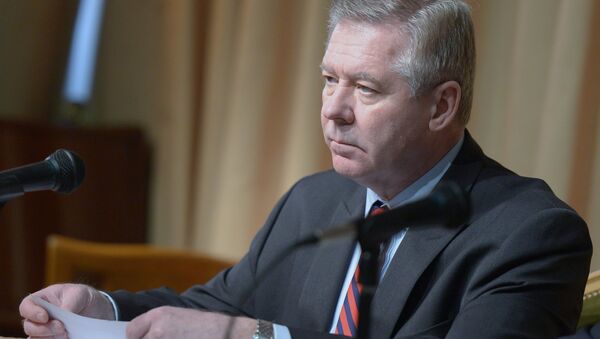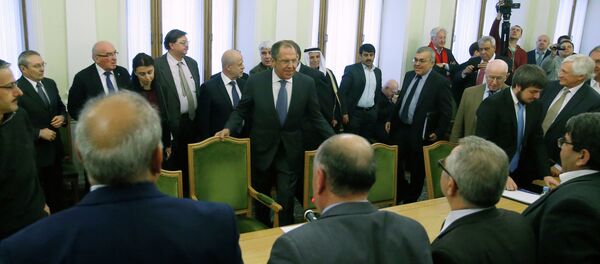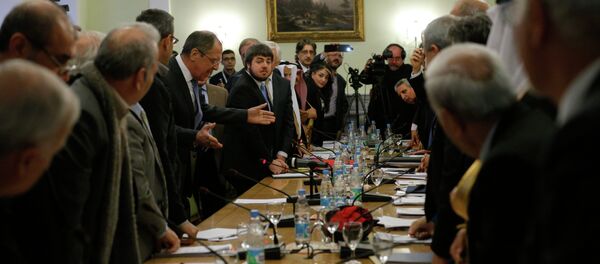"The Syrian National Coalition's decision not to come to Moscow was based on some implausible excuses. On of them was that the government was not represented on a proper level," Gatilov said.
He pointed out that "many other" opposition representatives came to the Moscow talks and engaged in a "serious" round of negotiations.
The deputy foreign minister also said that the recent negotiations in Moscow helped to lay the foundation for talks in other formats.
He added that any suggestions made during the talks should be discussed, as it encouraged discussion and dialogue.
From January 26 to 29, Moscow hosted talks on Syrian reconciliation, which were attended by government officials, opposition party representatives and UN special envoy for Syria Staffan de Mistura.
On January 19, Syrian National Coalition vice president Badr Jamous said the coalition would not take part in the Moscow talks as it blamed the government of Bashar Assad for restricting the meeting's agenda to the fight against terrorism and support for the Syrian Army.
The Syrian government has been fighting various armed groups since 2011. Previous rounds of negotiations between the Assad government and the Syrian opposition were held in Geneva in 2012 and 2014, but no agreement was reached.



